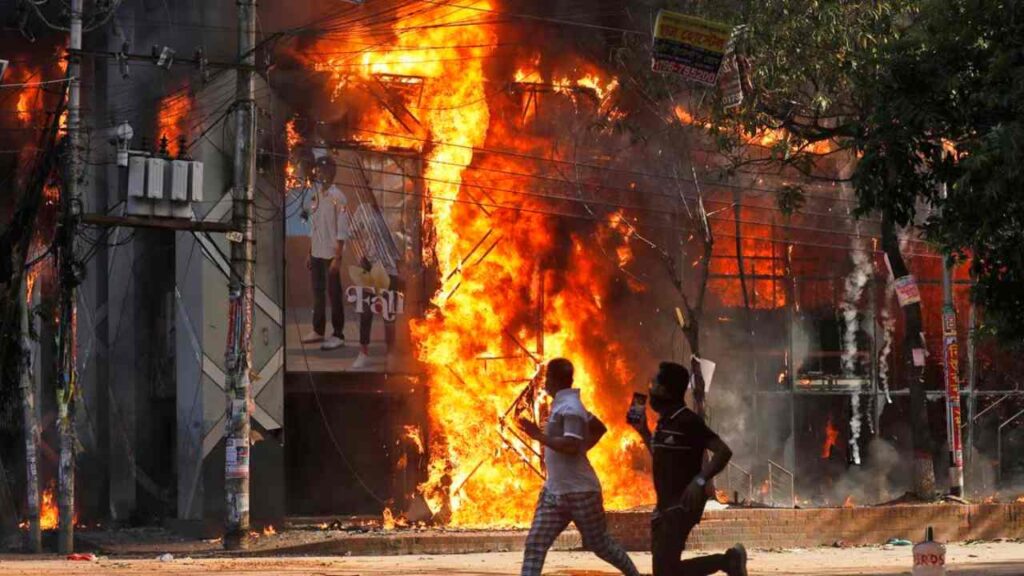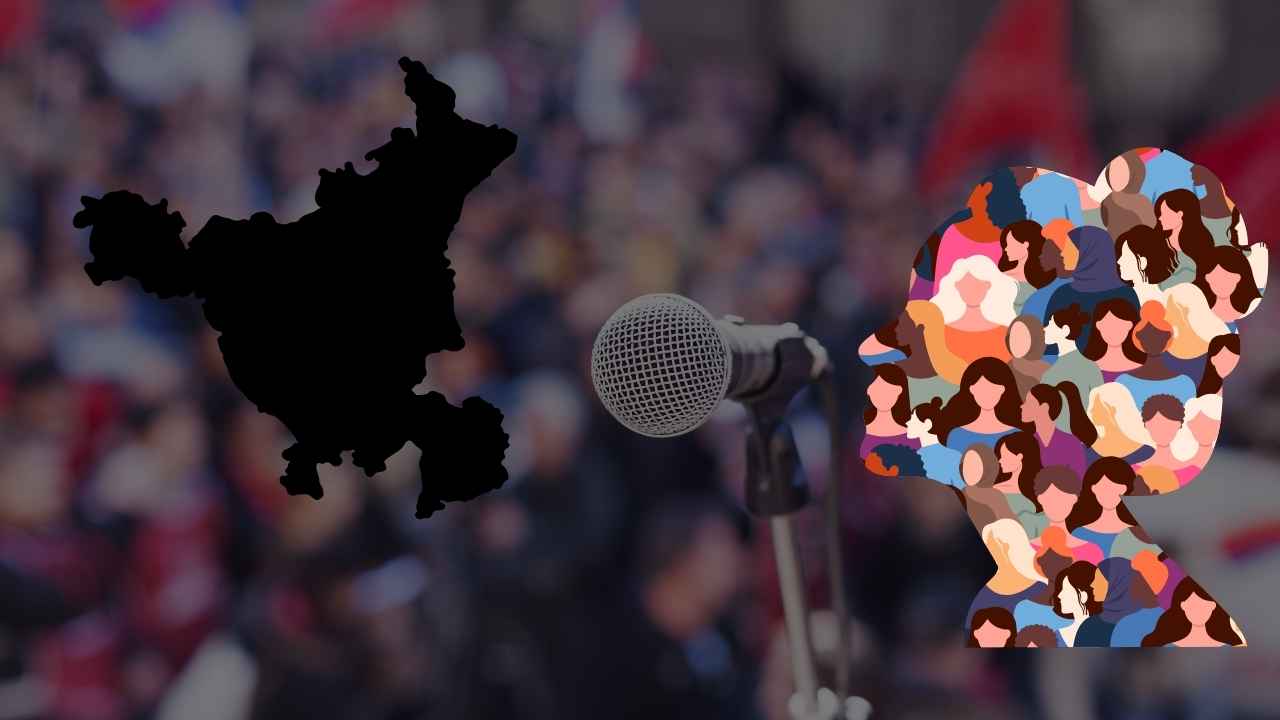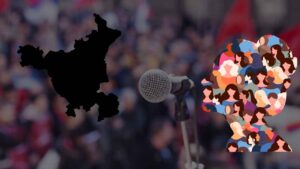Bangladesh Unrest: Protesters Take Away Dior Bag, Saree from Ex-PM Sheikh Hasina’s Official Residence; Eat Biryani
The Unraveling of a Political Crisis
Ex-PM Sheikh Hasina Bangladesh is currently grappling with a wave of unrest that has shocked the nation and caught international attention. The latest in this series of events saw protesters storming the official residence of former Prime Minister Sheikh Hasina, looting personal items including a Dior bag and a saree, and even indulging in a biryani feast. This incident is a microcosm of the larger political and social turmoil unfolding in the country, raising questions about security, governance, and the future of Bangladeshi politics.
A Breach in Security
The audacity of the protesters' actions at Sheikh Hasina's residence highlights a significant lapse in security measures. The official residence, a symbol of political authority and power, was thought to be impenetrable. Yet, the recent breach exposed vulnerabilities that have left many questioning the efficacy of the nation's security apparatus. The protesters not only managed to enter the premises but also had the time to take away valuable personal items and enjoy a meal, indicating a severe failure in maintaining order and protection.
The Loot: More Than Just Material Loss

Among the items taken from the residence were a Dior handbag and a saree, symbols of personal and cultural significance. While the material value of these items is noteworthy, their theft represents a deeper symbolic act of defiance against the political elite. The Dior bag, a luxury item, and the saree, a traditional garment, were not just stolen for their monetary worth but as a statement against the disparity and perceived corruption within the governing class.
The Biryani Feast: A Disturbing Display of Defiance
Perhaps the most surreal aspect of the incident was the protesters’ decision to sit down and eat biryani at the residence. This act of feasting in the face of chaos is a stark illustration of the contempt and frustration that many Bangladeshis feel towards their leaders. The biryani, a beloved dish in South Asia, became a symbol of the protesters reclaiming their dignity and asserting their presence in spaces traditionally reserved for the elite.
The Broader Context: Political Unrest in Bangladesh
This incident is not an isolated one but part of a larger pattern of political unrest in Bangladesh. The country has been experiencing widespread protests and demonstrations, driven by a multitude of factors including economic hardship, alleged corruption, and dissatisfaction with the government’s handling of various issues. The unrest has seen clashes between protesters and security forces, leading to injuries and fatalities, further exacerbating the tense situation.
Economic Struggles Fueling Discontent

Bangladesh's economic situation has been a significant factor contributing to the unrest. Despite notable economic growth in recent years, a large segment of the population still struggles with poverty and unemployment. The economic disparity has widened, and many citizens feel left behind by the promises of progress and prosperity. The frustration over economic conditions has been a driving force behind the protests, as people demand more equitable distribution of wealth and opportunities.
Allegations of Corruption
Corruption allegations have long plagued Bangladeshi politics, and the recent events have brought these issues to the forefront once again. Many protesters believe that the political elite, including former leaders like Sheikh Hasina, have benefited at the expense of ordinary citizens. The looting of luxury items from Hasina’s residence is seen as a direct response to these allegations, symbolizing a rejection of perceived corruption and mismanagement.
The Government's Response
The government’s response to the protests has been criticized both domestically and internationally. There have been reports of heavy-handed tactics by security forces, including the use of tear gas, rubber bullets, and mass arrests. These actions have only served to inflame tensions further, with human rights organizations calling for restraint and dialogue. The government's inability to effectively address the root causes of the unrest has led to a growing sense of instability and uncertainty about the country's future.
The Role of Social Media
Social media has played a crucial role in organizing and amplifying the protests. Platforms like Facebook, Twitter, and WhatsApp have been used to mobilize crowds, share information, and broadcast live footage of demonstrations and clashes. This has allowed protesters to coordinate their efforts and maintain momentum, despite attempts by the authorities to crack down on dissent. The viral spread of images and videos from Sheikh Hasina's residence has added to the outrage and drawn international attention to the situation in Bangladesh.
ALSO READ: Amid Chaos at Sheikh Hasina’s Residence, Woman Smiles with Dior Suitcase
The International Community's View
The international community has been closely monitoring the situation in Bangladesh. Various countries and organizations have expressed concern over the escalating violence and the government's handling of the protests. There have been calls for dialogue and peaceful resolution to the crisis, with some nations offering to mediate. The ongoing unrest has the potential to impact Bangladesh's international relations, particularly with countries that have strong economic and political ties to the nation.
Looking Ahead: The Future of Bangladesh
The recent events at Sheikh Hasina's residence are a stark reminder of the deep-seated issues facing Bangladesh. As the country grapples with economic challenges, allegations of corruption, and widespread discontent, the path to stability and progress seems fraught with obstacles. The government's ability to address these issues and engage in meaningful dialogue with the opposition will be crucial in determining the nation's future trajectory.
For Bangladesh to move forward, there needs to be a concerted effort to bridge the gap between the political elite and the general populace. Addressing economic disparities, ensuring transparent governance, and fostering a culture of accountability are essential steps towards restoring faith in the political system. The recent protests, while disruptive, also present an opportunity for introspection and reform. By listening to the voices of its citizens and taking decisive action, Bangladesh can hope to emerge stronger and more united from this period of turmoil.
Conclusion
The storming of Sheikh Hasina's official residence and the subsequent looting and feasting by protesters have laid bare the profound challenges facing Bangladesh. This incident, while shocking, is a symptom of deeper systemic issues that require urgent attention. As the country navigates this tumultuous period, the onus is on both the government and the opposition to work towards a peaceful and prosperous future for all Bangladeshis. The world watches with bated breath, hoping for a resolution that honors the resilience and aspirations of the Bangladeshi people.














1 comment